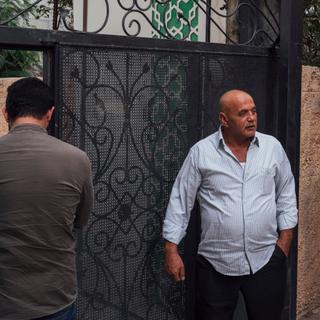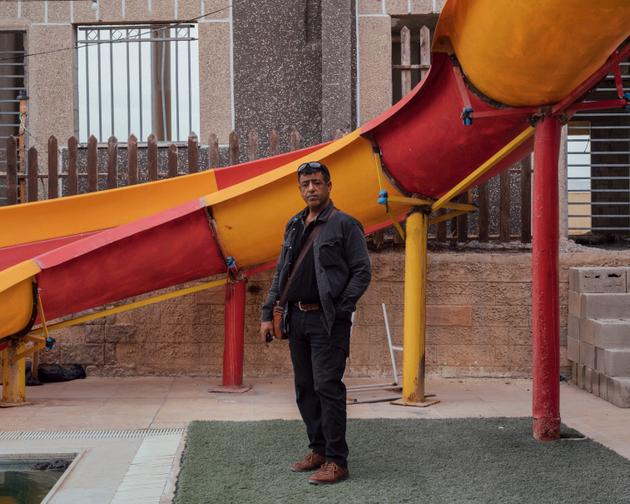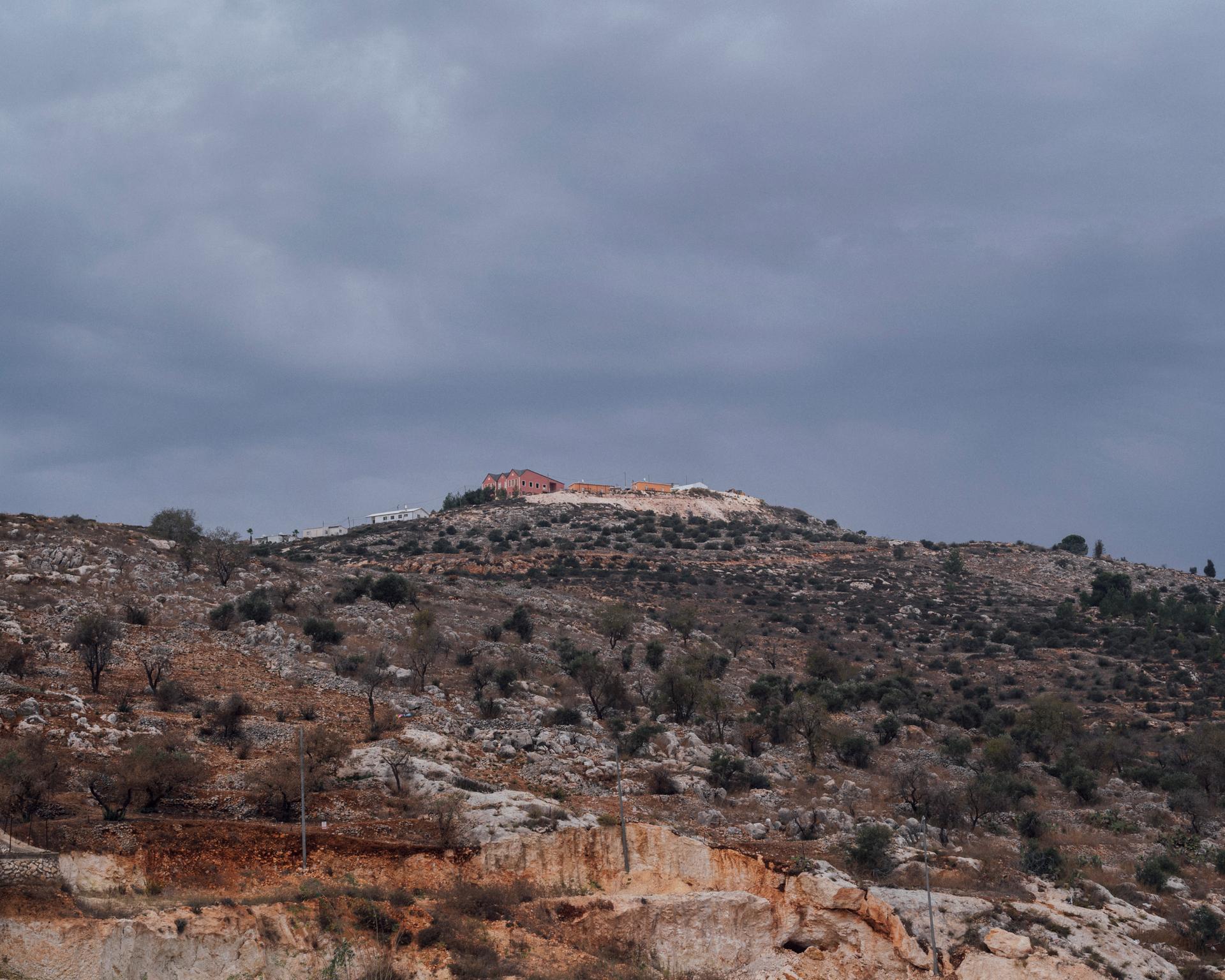


In a West Bank town, the Israeli army confines Palestinians to their homes: 'We're in a prison and it's liable to explode'
FeatureRestrictions on movement have been imposed on the population of Huwara since Hamas's terrorist attack. Beyond the current conflict, this extreme situation is the culmination of years of confrontation with settlers.
In Huwara, the war didn't start on October 7 but on October 5. Or before. Abdallah Awda no longer knows. "The settlers have been attacking us for over two years. Constantly. And it's getting worse and worse. Back then, they attacked my club and burnt my van. They came down regularly, slashed the tires of customers' cars and smashed the windows. Dozens of families came every weekend. Now it's all over," lamented Awda, owner of the Country Resort, a leisure complex with a swimming pool, Turkish baths, guest rooms and even a Ferris wheel whose rusty gondolas creak in the strong wind.

He had belief, 12 years ago, when he launched this business, after making enough money with his transport company. Located at the very top of the hillside town, the club dominates Huwara, with its castle-like towers.
Below, you can make out stone buildings, the remains of the first village, which dates back to Ottoman times. They are set between terraces, protected by prickly pear trees – this was how crops were protected from animals in those days. Further down still, Highway 60, the ancient Road of the Patriarchs, links Hebron, Bethlehem, Jerusalem and Nablus, between ridges and gorges.
Huwara is a commercial crossroads in the middle of the West Bank, occupied by Israel since 1967. All around are settlements, some of which are known to be the most extreme in the region, such as Yitzhar, which tops the hill just above Awda's club. The road is difficult to share between the two communities. Sandwiched between two rows of houses and clogged with traffic jams, it has become an ideal place to ambush settlers.

The latest was on October 5. On that day, a Palestinian man fired a pistol at the car of a young couple with a child, without causing any casualties. The man fled, only to be killed shortly afterward by the Israeli forces deployed in large numbers in the town. But retaliation was not long in coming. The local settlers call this tactic the "price to pay" whenever an Israeli is threatened, injured or killed. It involves rampaging through the streets of Huwara, smashing shop windows and harassing Palestinians. All under the protection of the army. The town's inhabitants have adapted. House entrances are solidly barricaded. Not a window is left unbarred.
Young Israelis at odds with society
That evening, the assailants decided to set up in the middle of the road for Sukkot, the Feast of Booths, where, according to the biblical account, the divine assistance received by the Jews during the exodus from Egypt is celebrated with joy. They began to sing, dance and drink in front of the Palestinians, triggering their anger.
You have 70% of this article left to read. The rest is for subscribers only.
